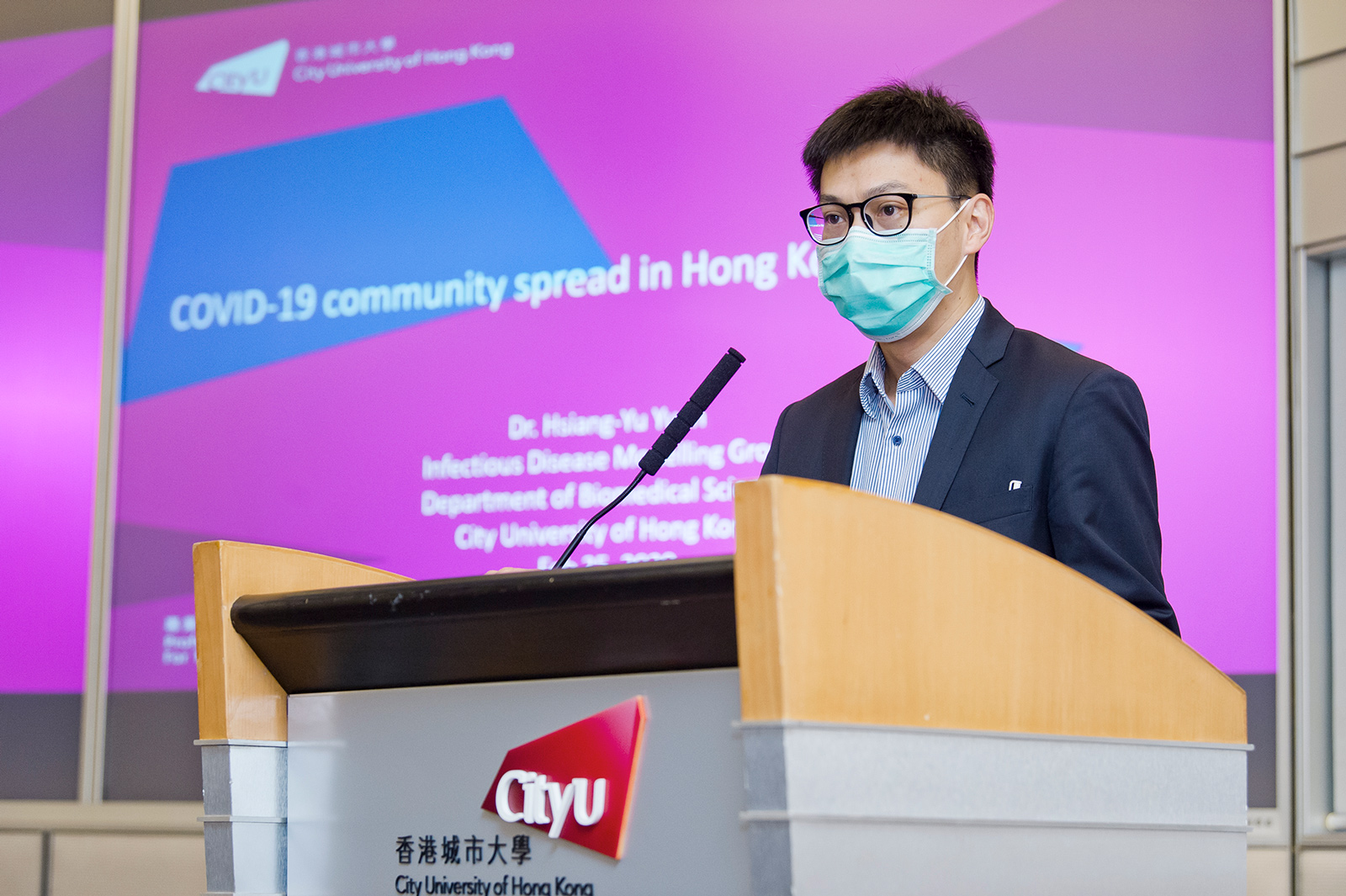

A possible increase of around 60 infected cases of the novel coronavirus (COVID-19) from mid-February to mid-March is projected by Dr Sean Yuan Hsiang-yu, Assistant Professor in the Department of Biomedical Sciences at City University of Hong Kong (CityU). Whether the number of local infections will grow significantly depends on how effective the quarantine measures are at reducing the recontact rate between the high-risk individuals and other people.
Following his estimation last month about the number of possible local cases for citizens returning from the mainland after the Chinese New Year holidays, Dr Yuan again applied mathematical model to project a picture of the spread of the epidemic in Hong Kong. In his new projection, he estimated that individuals infected by the virus were quarantined after showing symptoms for around 3.5 days on average.
By using a model adapted from Imperial College London in the UK, Dr Yuan included different parameters in his projection, such as the incubation period of COVID-19 (five days on average) and the time gap between patients showing symptoms of the virus and the point of quarantine. He then estimated possible numbers of imported cases and local infections that might take place between 18 January and 11 February in Hong Kong under different scenarios. After comparing the numbers with actual figures, Dr Yuan deduced that patients were quarantined on average around 3.5 days after showing symptoms.
Based on the number of individuals diagnosed in mid-February and the use of the mathematical model, Dr Yuan estimated that Hong Kong will have around 60 new infectious cases between mid-February and mid-March if the infected cases do not have any contact with others during the quarantine period, making the cumulative number of local infections over 100.
If the infected individuals during the quarantine period contact 80% fewer people than usual, by mid-March, the number of new cases in Hong Kong will jump to around 350.
His projection included the number of infected individuals and potential patients placed under different modes of quarantine after showing symptoms of the virus for 3.5 days. He also assumed that some individuals are infected but undiagnosed.
Dr Yuan pointed out that the early isolation of patients is the key to prevent community outbreaks. “High-risk individuals, including those who often contact unacquainted persons or who often go to different places should see a doctor and perform self-isolation as soon as possible if they have symptoms of fever, fatigue, a hacking cough and difficulty in breathing,” Dr Yuan said.
He suggested that the government review the effectiveness of current quarantine measures so as to reduce the possibility of patients contacting others as far as possible.
Using the model adapted from Imperial College London, Dr Yuan estimated last month that Hong Kong residents returning from mainland China after the Lunar New Year celebration, if infected but undiagnosed for 5 days, would bring 60 infected cases in total in a few weeks, which was close to the number of current confirmed cases in Hong Kong.
The Jockey Club College of Veterinary Medicine and Life Sciences, which was established in in 2018, initiated a global drive to search for talents to carry out research in the field of public health. Professor Way Kuo, President of CityU, approved the interview panel’s recommendation for Dr Yuan’s appointment.
Before joining CityU, Dr Yuan was engaged in human genomic medicine research at the Institute of Biomedical Sciences, Academia Sinica, Taiwan, from 2003 to 2006. He then pursued a PhD in Biocomputing at Duke University, US. He has worked on predictive models of infectious diseases in the Department of Infectious Disease Epidemiology at Imperial College London in 2013 and he was engaged in dengue research at the National Health Research Institutes in Taiwan in 2017.




